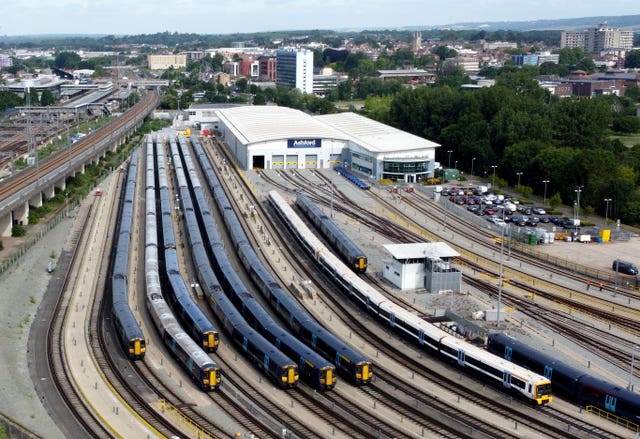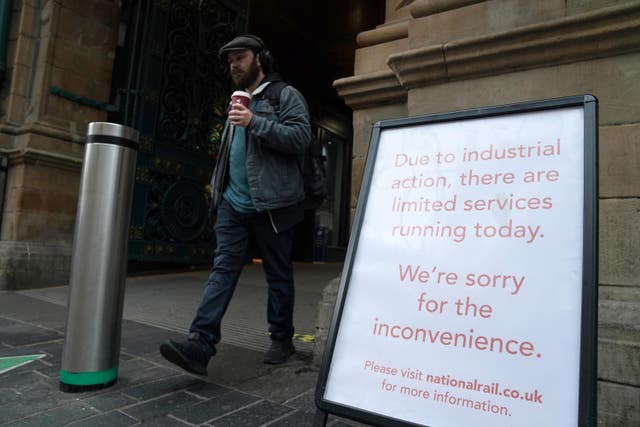
Ian Payne 4am - 7am
21 June 2022, 10:54

The Prime Minister told a meeting of the Cabinet that reforms are vital for the rail industry and those who work in it.
An NHS worker from Liverpool has said he fears he will not be allowed into Glastonbury Festival after rail strikes hit his travel plans.
Huw, who did not wish to share his second name, booked a coach ticket to Glastonbury in October 2019 before the event was later cancelled due to the Covid-19 pandemic in 2020.
The 28-year-old patient-facing worker has since moved to Liverpool but his ticket requires him to travel via a festival-organised coach from Brighton at 7am on Wednesday.
Check out the video for some helpful trips if you're travelling to @glastonbury … #Glastonbury2022 @PoliceAtGlasto @GlastoWatch pic.twitter.com/9azgsgcCwu
— Travel Somerset (@TravelSomerset) June 20, 2022
He does not finish work until 9pm on Tuesday and the final train from Liverpool to London is at 4pm, so he has now spent £70 on the earliest available bus to the festival on Thursday morning hoping he will be allowed entrance.
“Festival tickets are given out on the coach, so there’s a very real possibility that this rail strike means I can’t actually get into the festival,” Huw told the PA news agency.
“I’m making my own way from Liverpool on Thursday morning and will be relying on the goodwill of the Brighton coach driver to hand my festival ticket over either to the box office or to my mates who’ll meet me at the gate… hopefully common sense prevails.”
It comes as millions of people are suffering disruption as the largest rail strike for a generation cripples Britain’s train services.
Rene Mance, 47, said the travel chaos had disrupted her journey to Glastonbury Festival where she was starting a new job.

“I can’t pretend it hasn’t been stressful. It has. I didn’t really sleep very well because I was worried about it,” she said, adding she had arrived two hours before her train is due to depart in fear of unforeseen complications.
Because she was travelling with heavy luggage, Ms Mance said she felt getting the bus would cause problems and was forced to pay almost £40 for a cab to the station.
She empathised with the strikers but questioned whether industrial action of this scale was the answer, especially given the difficulties faced by disabled people and those who cannot afford an expensive taxi.
Speaking to PA news agency as she waited for her train at Paddington Station in London, she said: “For many people, say a mother with kids or someone disabled, it’s absolute chaos. My situation, whatever it is, I would have found a way, but you know, some people are not like me.
“They don’t have money to get in the cab, and it was a total luxury for me, but it worked.”

Only a fifth of trains are running on Tuesday as around 40,000 members of the Rail, Maritime and Transport (RMT) union at Network Rail and 13 train operators have walked out in a bitter dispute over pay, jobs and conditions.
Prime Minister Boris Johnson warned train passengers they must “stay the course” in the face of the “unnecessary aggravation” caused by rail strikes.
He also told a meeting of the Cabinet that reforms are vital for the rail industry and those who work in it.